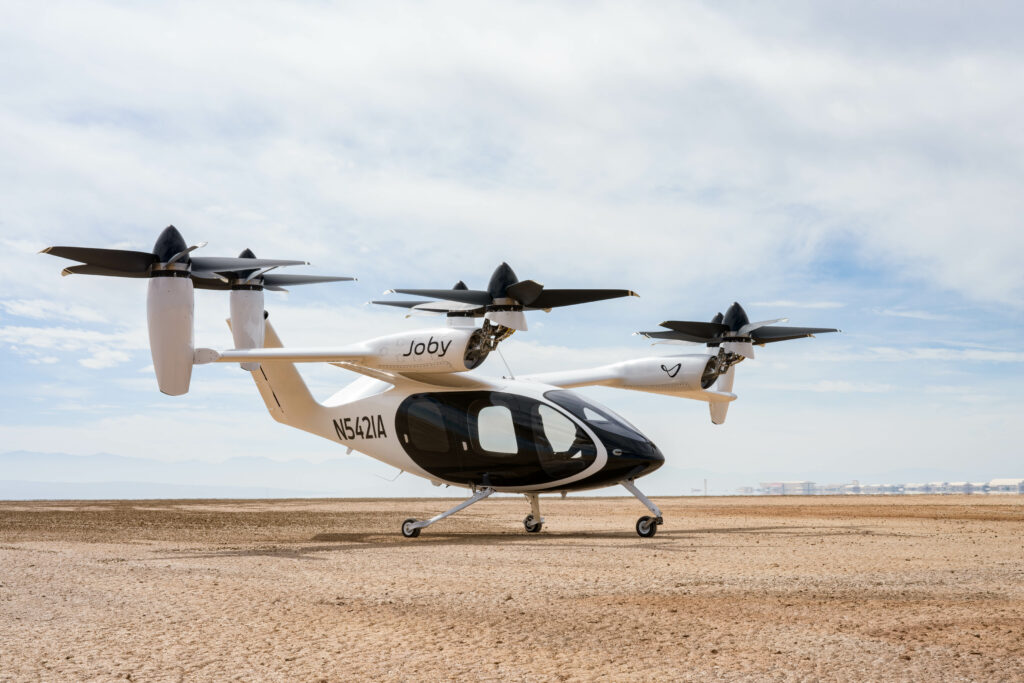Joby Aviation has delivered the first electric vertical landing and takeoff (eVTOL) system to the US Air Force as part of a $131-million Agility Prime effort to integrate air taxis into the service.
The company shipped the aircraft to Edwards Air Force Base six months earlier than the expected delivery date.
It will be operated for on-base tasks, including passenger transportation and cargo logistics, and will be piloted by both Joby and US Air Force personnel.
Air Taxis in US Defense
The Agility Prime program, led by the air force’s innovation arm AFWERX, expects up to nine five-seat, zero-emmissions, and low-noise eVTOL systems from Joby.
The initiative includes ground support, charging equipment, and an on-base joint flight test to demonstrate the aircraft’s mission settings.
The project will also include training to prepare future eVTOL pilots and maintenance crews. These preparations will provide insights into the US Department of Defense strategies as well as Joby’s upcoming commercial passenger service launch in 2025.
Edwards AFB is scheduled to receive the second unit in early 2024.


“We’re proud to join the ranks of revolutionary aircraft that first demonstrated their capabilities at Edwards Air Force Base, including the first American jet fighter, the first supersonic aircraft, and many others that have pushed the boundaries of aviation technology,” Joby Aviation CEO and Founder JoeBen Bevirt stated.
“The longstanding support of the DOD… has been critical to the rapid development of electric aviation and eVTOL aircraft, and demonstrates how successful public-private partnerships can bring new technology to life at speed.”
“Their work will have profound implications for continued American leadership in both commercial and defense aerospace technology.”
Research for National Airspace Use
Alongside military use, NASA will leverage the aircraft to research VTOL utility for domestic airspace.
“NASA’s participation in the Joby and AFWERX project will provide our researchers with hands-on experience with a representative eVTOL vehicle, concentrated on how these types of aircraft could fit into the national airspace for everyday use, that will inform NASA’s effort in supporting the entire eVTOL industry,” NASA Research Pilot Wayne Ringelberg explained.
“The research will include a focus on handling qualities evaluation tools, autonomy, and airspace integration, which is all needed research to push the industry forward.”


